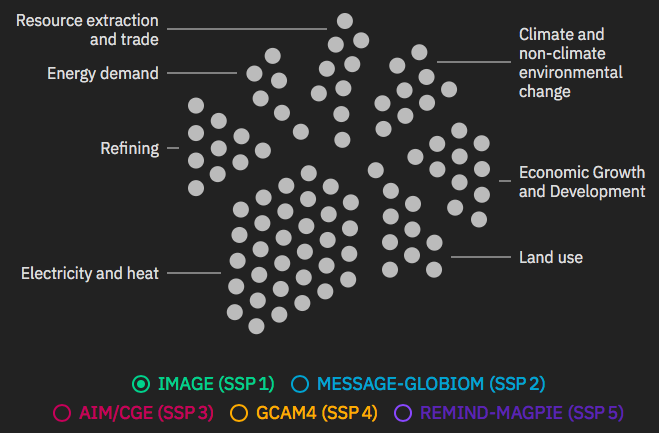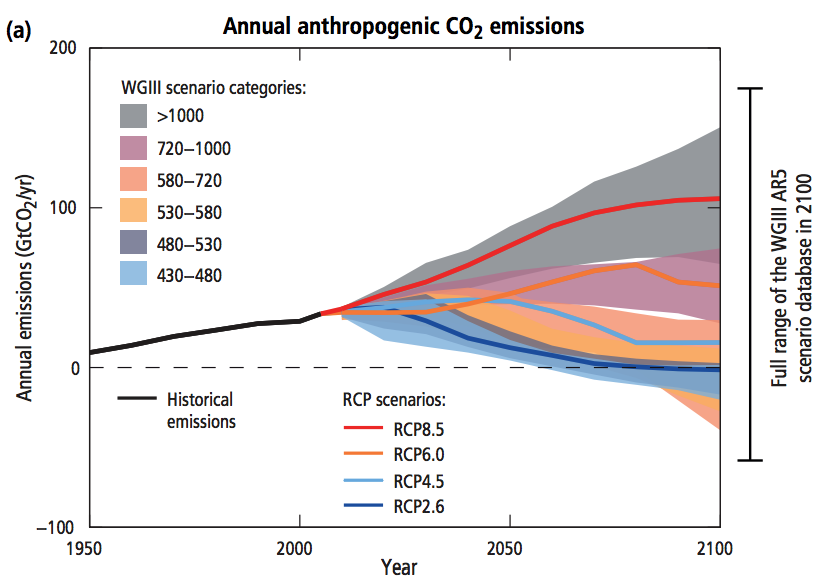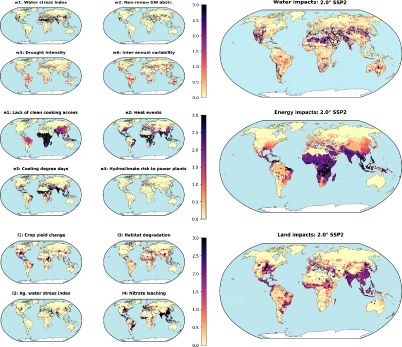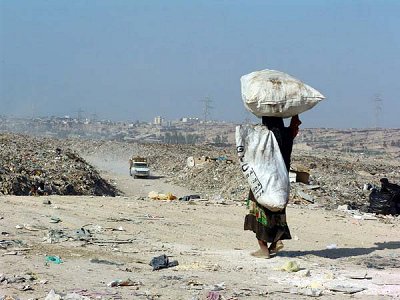socio-economic scenarios
SENSES Toolkit for Climate Change Adaptation
The SENSES Toolkit, developed in the EC SENSES project, offers a range of modules for finance, policy and regional decision makers to learn about and explore climate change scenarios.
Climate Change Scenario Primer
This interactive primer explains what climate change scenarios are and how they are connected to socioeconomics, energy and land use, emissions, climate change and climate impacts.
10 Things to Know About the IPCC Scenario Framework
This article looks at the meaning and purpose of scenarios in the current IPCC Framework and provides answers to 10 of the most frequently asked questions, written in an accessible style.
Global exposure and vulnerability to multi-sector development and climate change hotspots
This paper aims to support understanding of the interplay between multiple climate change risks and socioeconomic development through investigating exposure to multi-sector climate impacts.
The impacts of climate change on poverty in 2030 and the potential from rapid, inclusive, and climate-informed development
The impacts of climate change on poverty depend on the scale of climate change, but also on demographic and socioeconomic trends.
IMPRESSIONS – Impacts And Risks From High-End Scenarios: Strategies For Innovative Solutions
IMPRESSIONS aims to understand the consequences of high-end climate change and to evaluate how such knowledge can be used in effective and integrated adaptation and mitigation decision-making.





